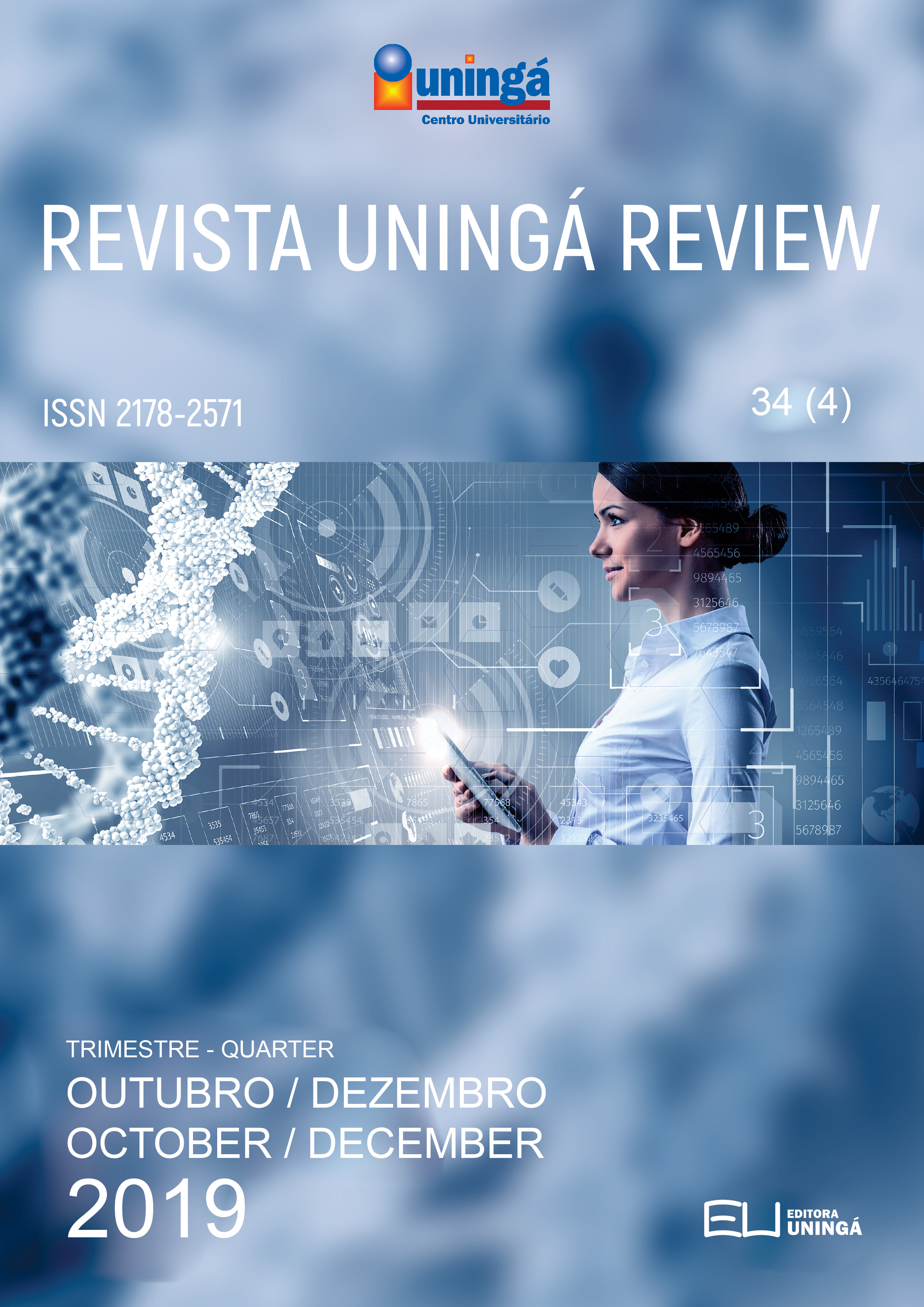ADENOCARCINOMA IN A DOG PROSTATE: CASE REPORT
Keywords:
Diagnostic, Male sexual Glands, NeoplasmsAbstract
The Prostate is a gland attached to the male reproductive tract, the urinary vesicle being caudal, ventral to the rectum and dorsal to the pubic symphysis. In this region, diseases such as: bacterial prostatitis, prostatic cyst, benign prostatic hyperplasia, abscesses and neoplasms are frequently found. Among neoplasms, adenocarcinoma is reported more frequently. The most common clinical signs observed are dysuria, strangeness, hematuria, pyuria, gastroenteric problems, signs of systemic disease and limited mobility. This study aims to report a clinical case of a male canine, diagnosed with prostatic adenocarcinoma, seen at the Veterinary Clinic of Centro Universitário Ingá - Uningá, Maringá, Brazil. The animal showed clinical signs compatible with prosthetic diseases. The diagnosis of the disease was based on history, clinical findings and complementary exams. On physical examination, there was an increase in abdominal sensitivity and asymmetry and firm consistency of the organ during digital rectal examination. In turn, ultrasound examinations showed changes in contour and heterogeneous echotexture. The main hematological changes observed were neutrophilic leukocytosis. However, the definitive diagnosis was obtained through cytology and histopathological examination, in which adenocarcinoma was confirmed. The animal underwent a prostatectomy, but died four months after the operation. Thus, it was possible to conclude that the localized adenocarcinoma contained a poor prognosis, thus emphasizing the importance of carrying out routine complementary tests for the early diagnosis of the disease.
Downloads
Downloads
Published
How to Cite
Issue
Section
License
I declare/we declare that the text submitted here is original, of my own authorship and does not infringe any type of third party rights. The content is my/our sole responsibility. Possible research involving animals and/or human beings is in accordance with Resolution 196/96 of the National Health Council and its complements. I declare that I am/we are in possession of the written consent of patients and that the research and its procedures were timely and adequately approved by the Ethics Committee of the institution of origin. We further declare that all institutional affiliations and all sources of financial support for the work are duly informed. I certify that there is no commercial or associative interest that represents a conflict of interest related to the submitted work. If there is commercial interest, in addition to the technical and academic ones, in the publication of the article, the information will be reported during the text.







































